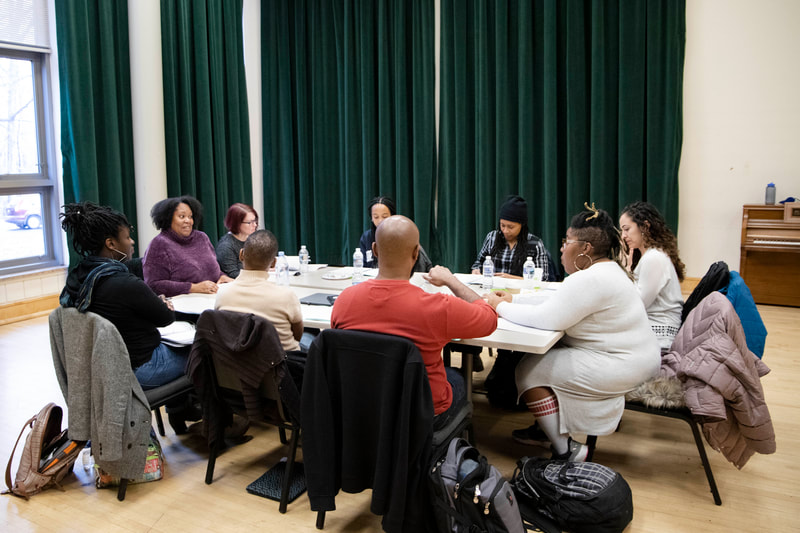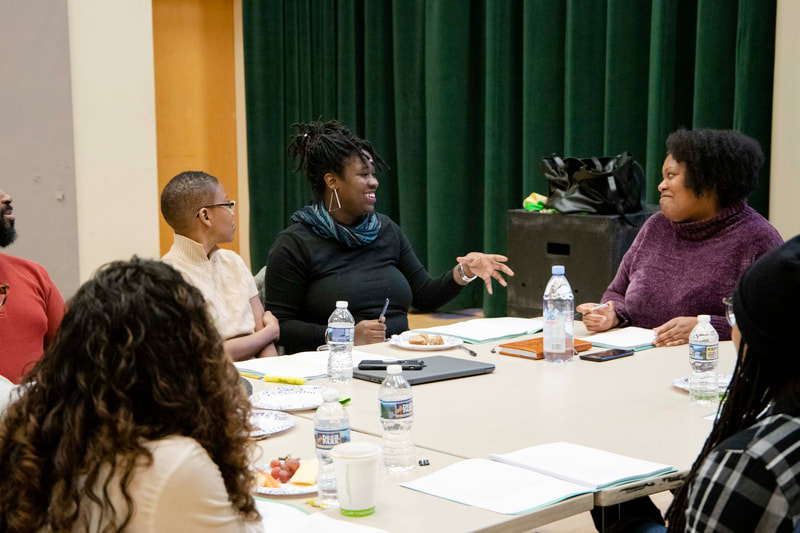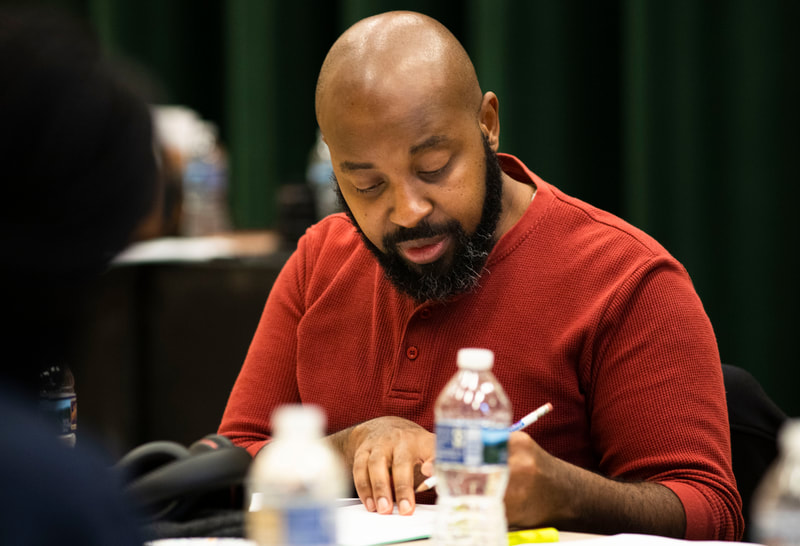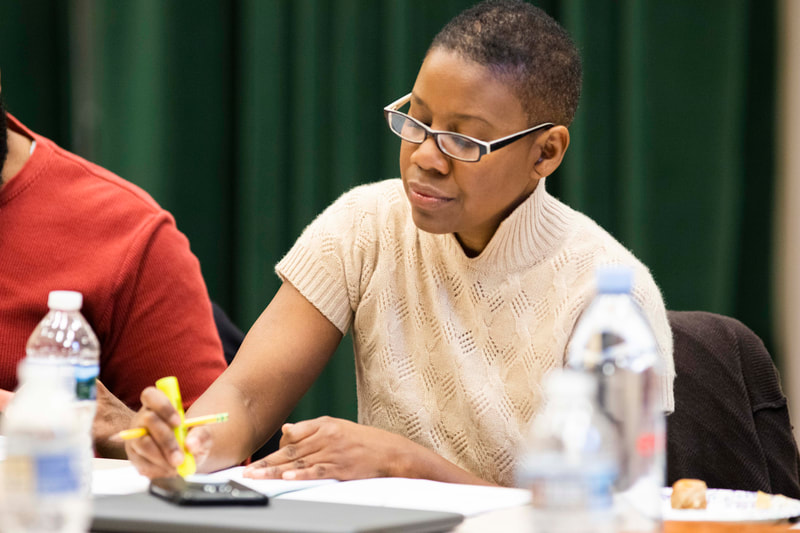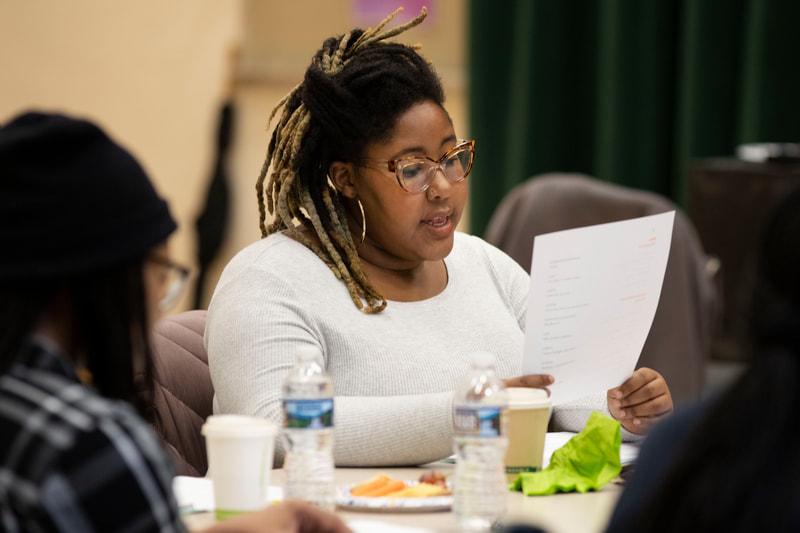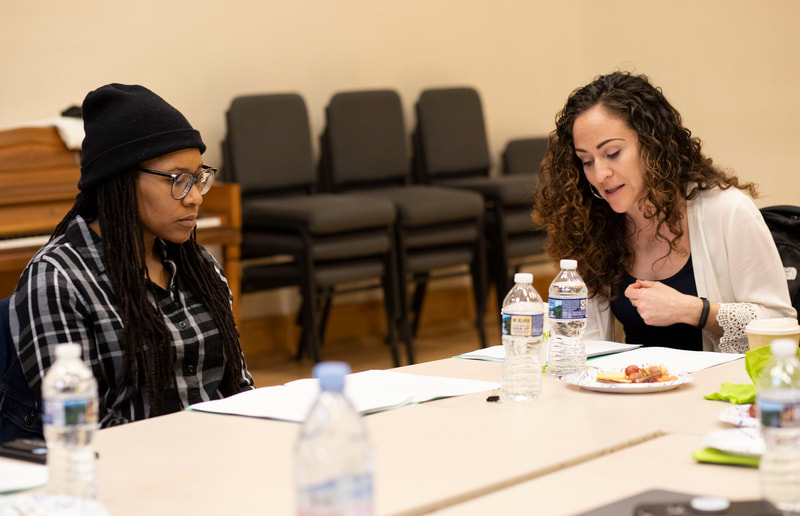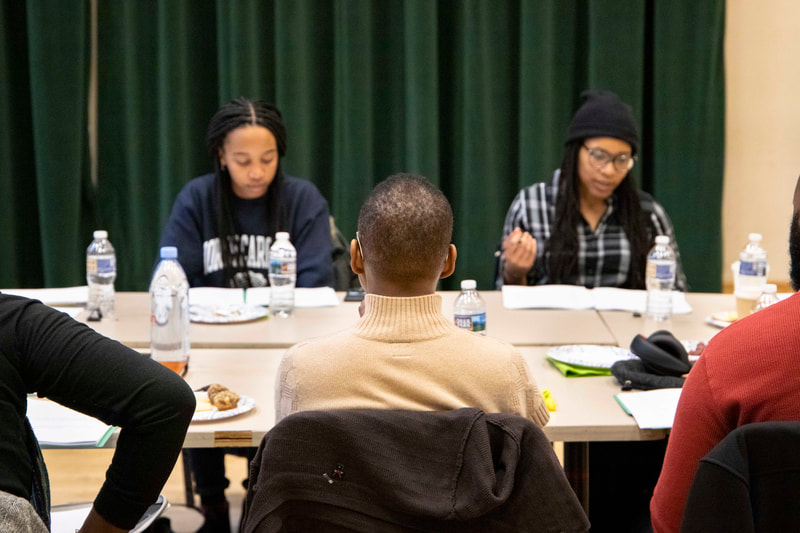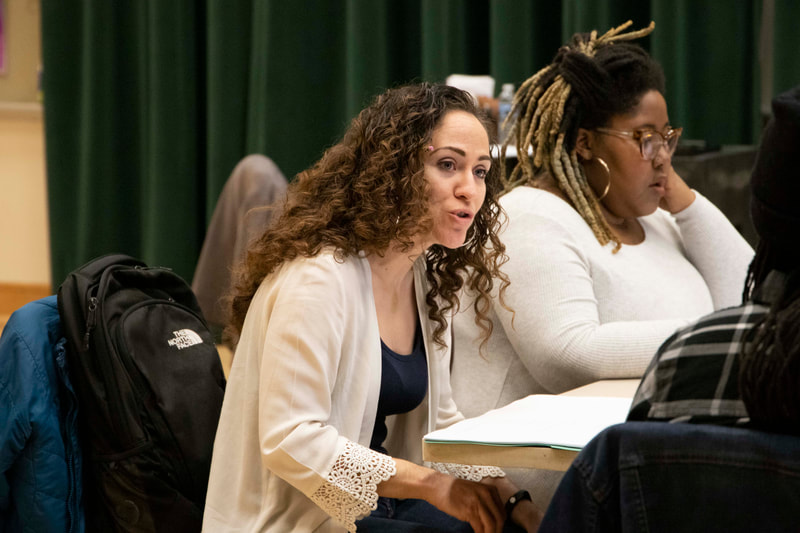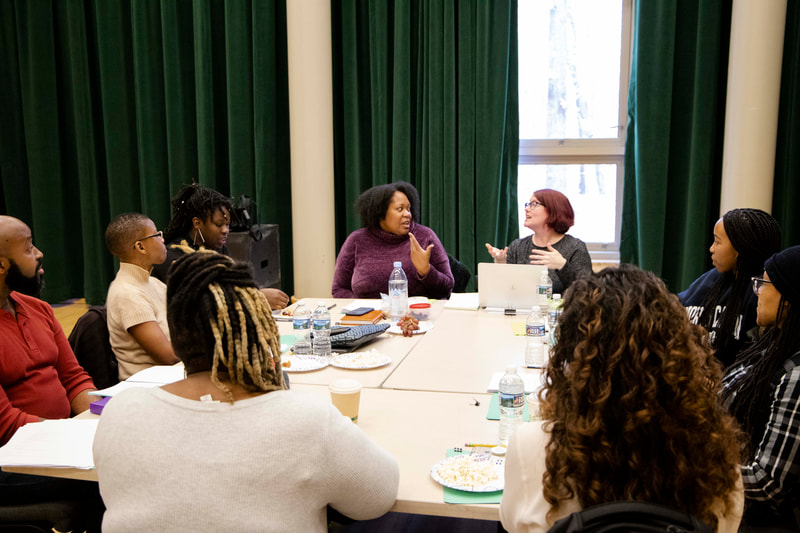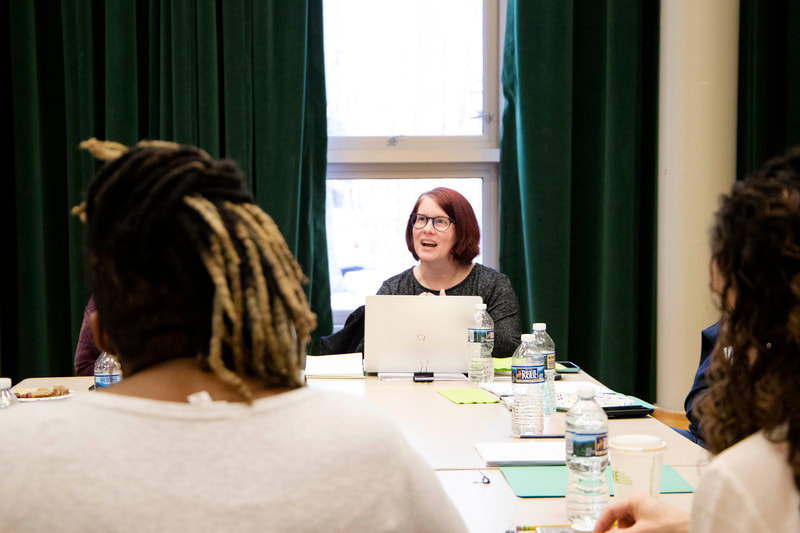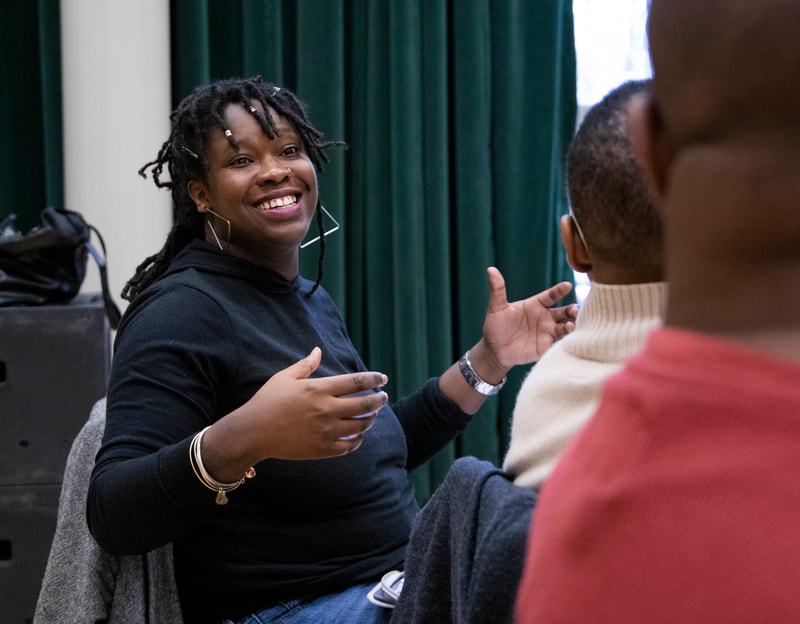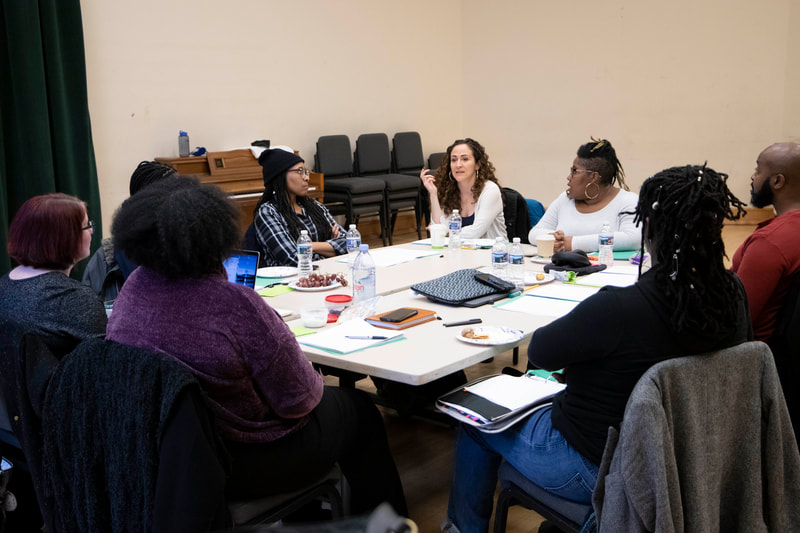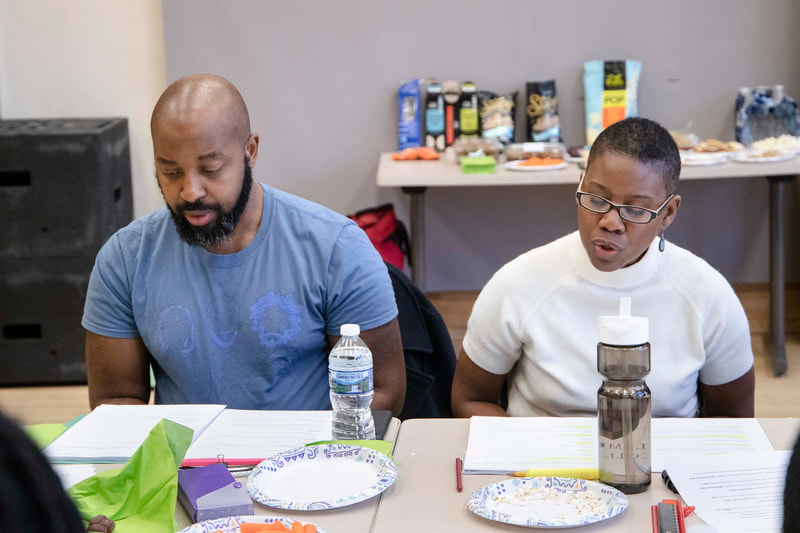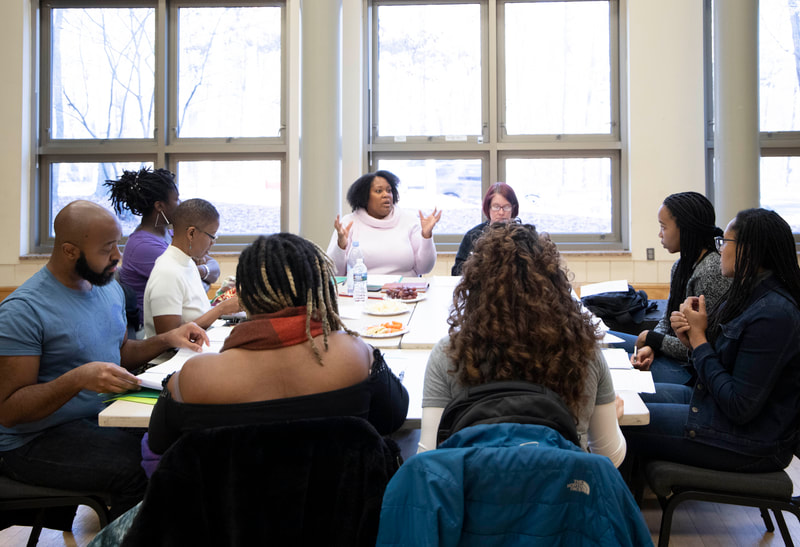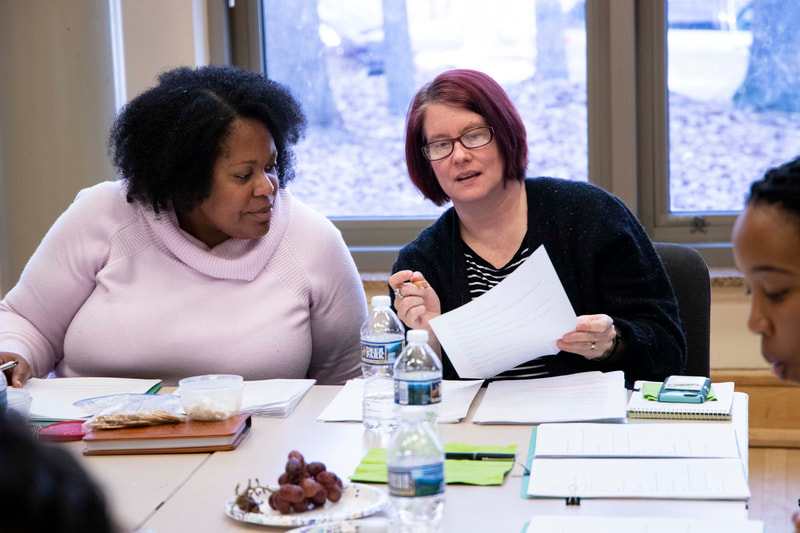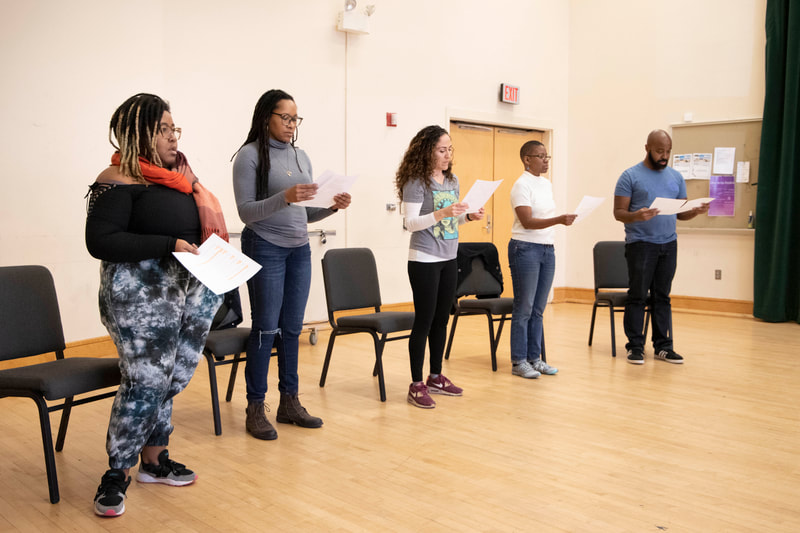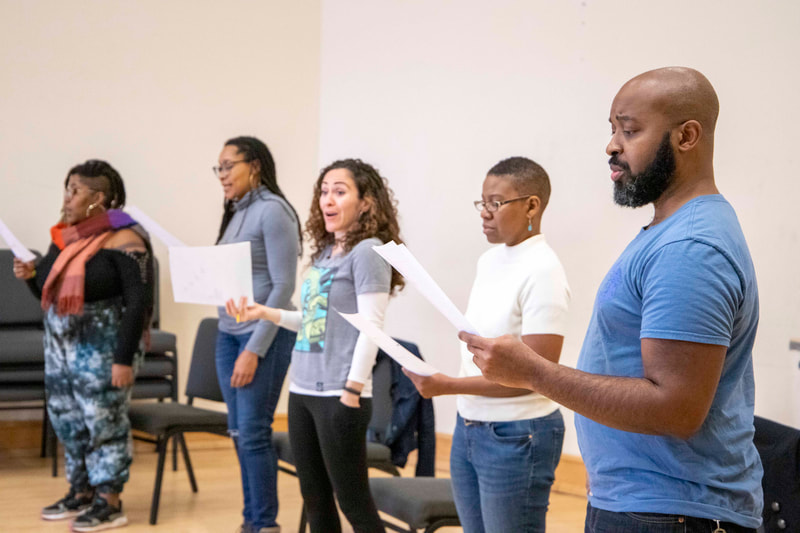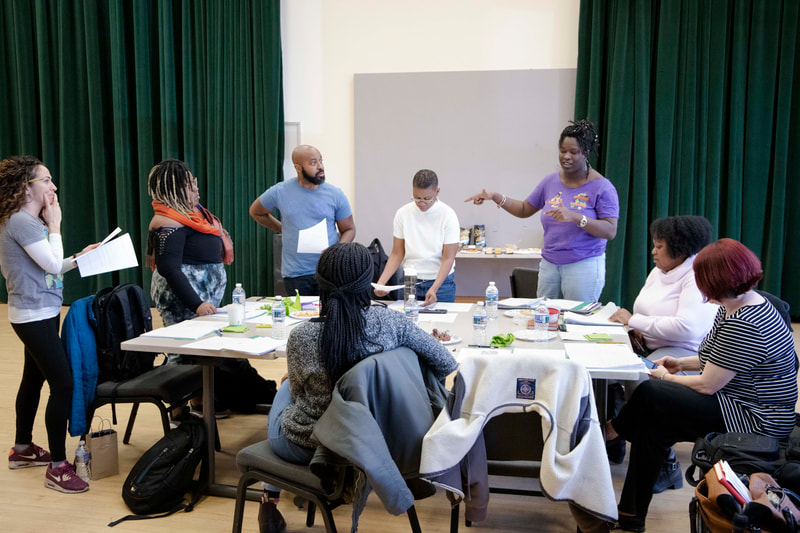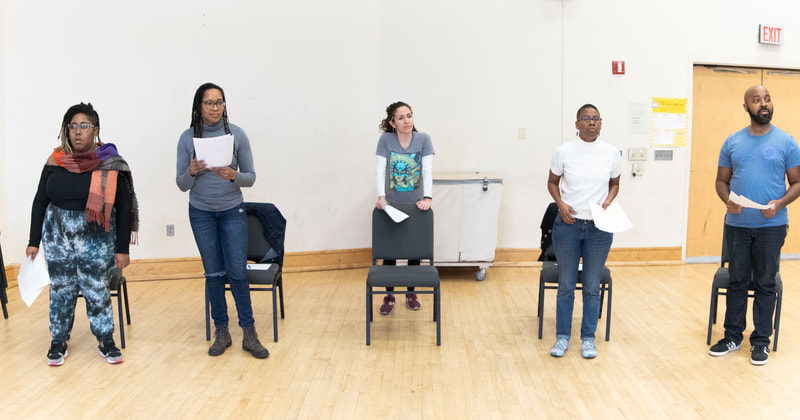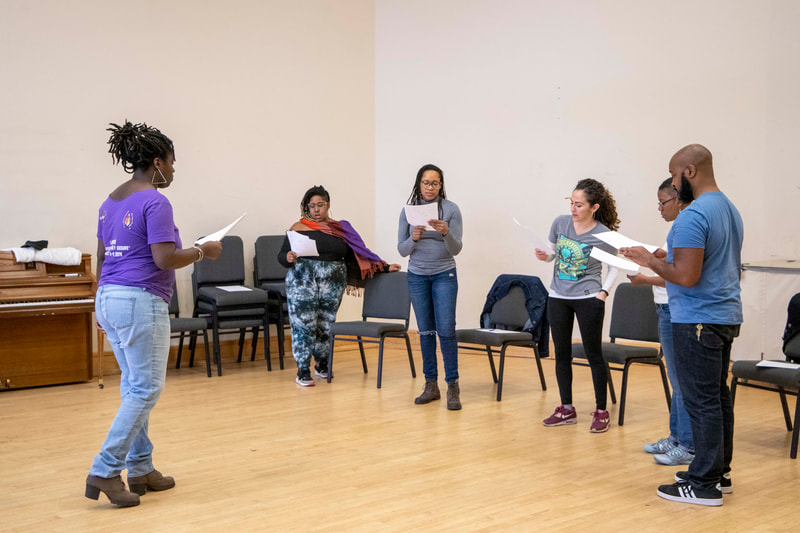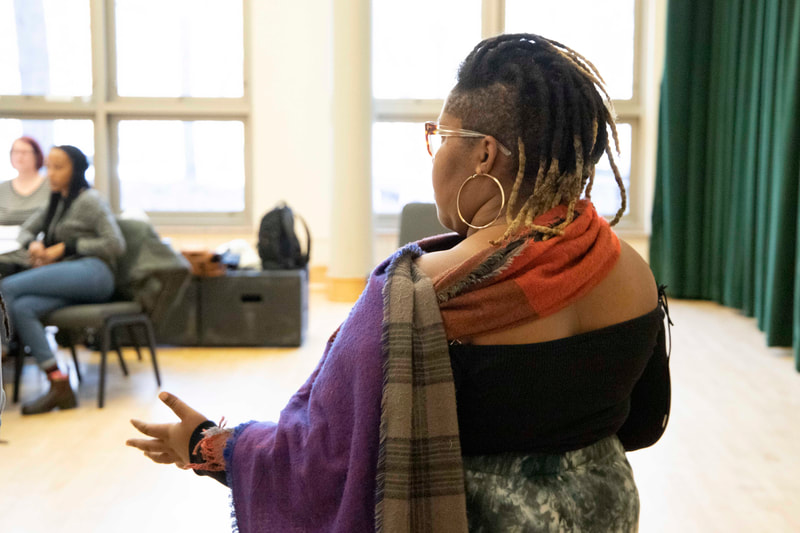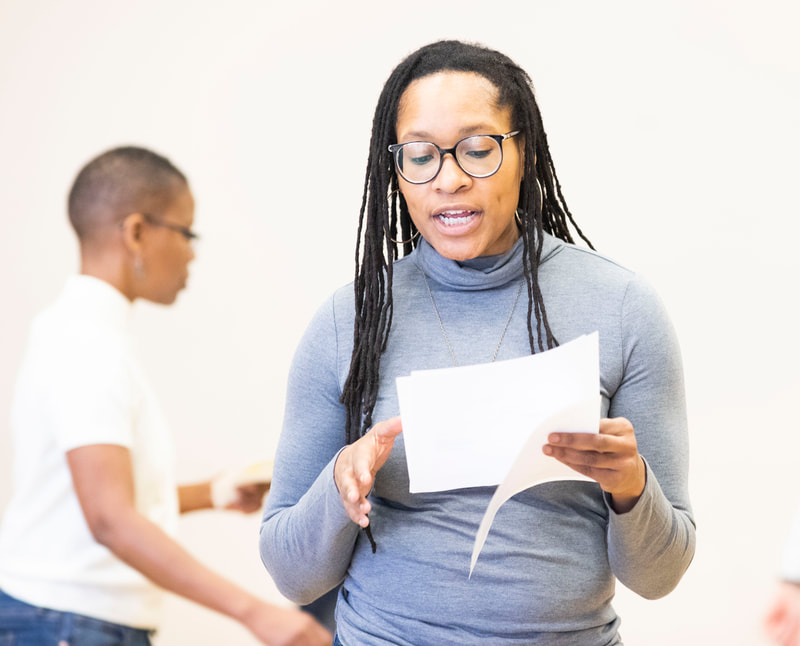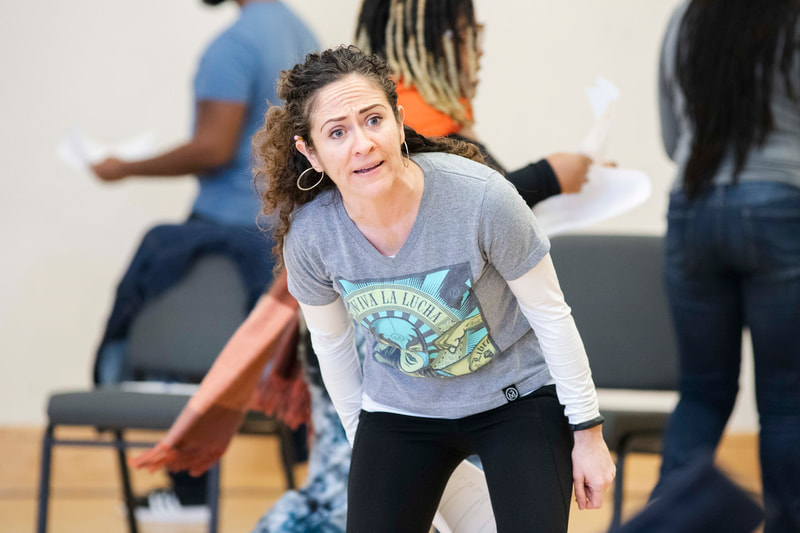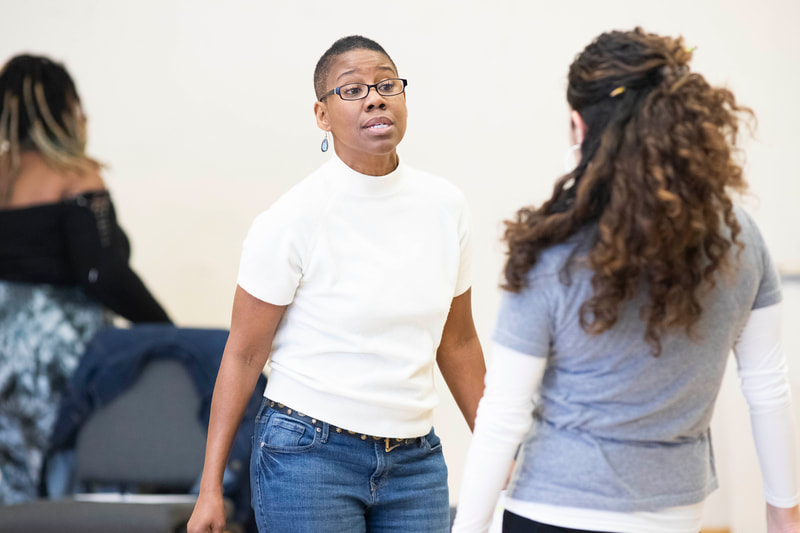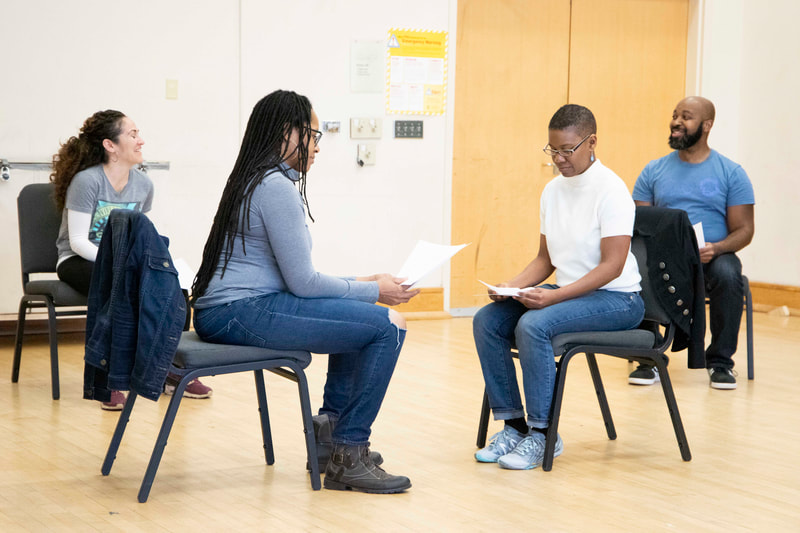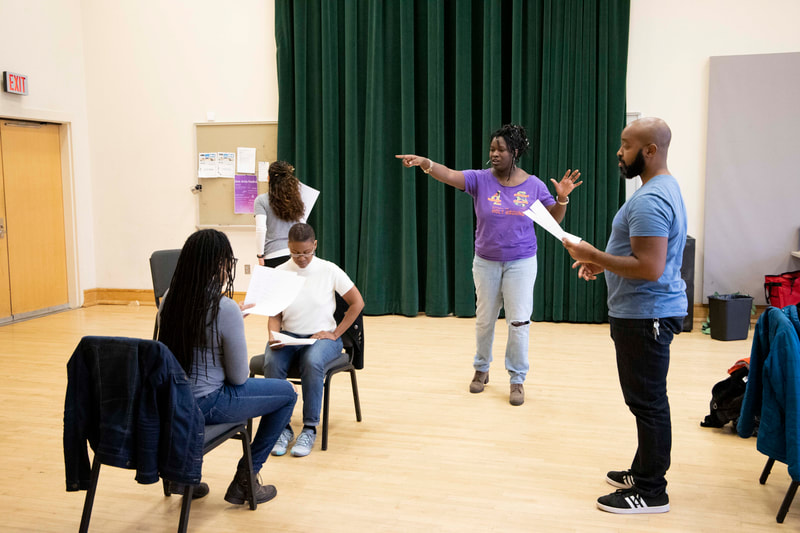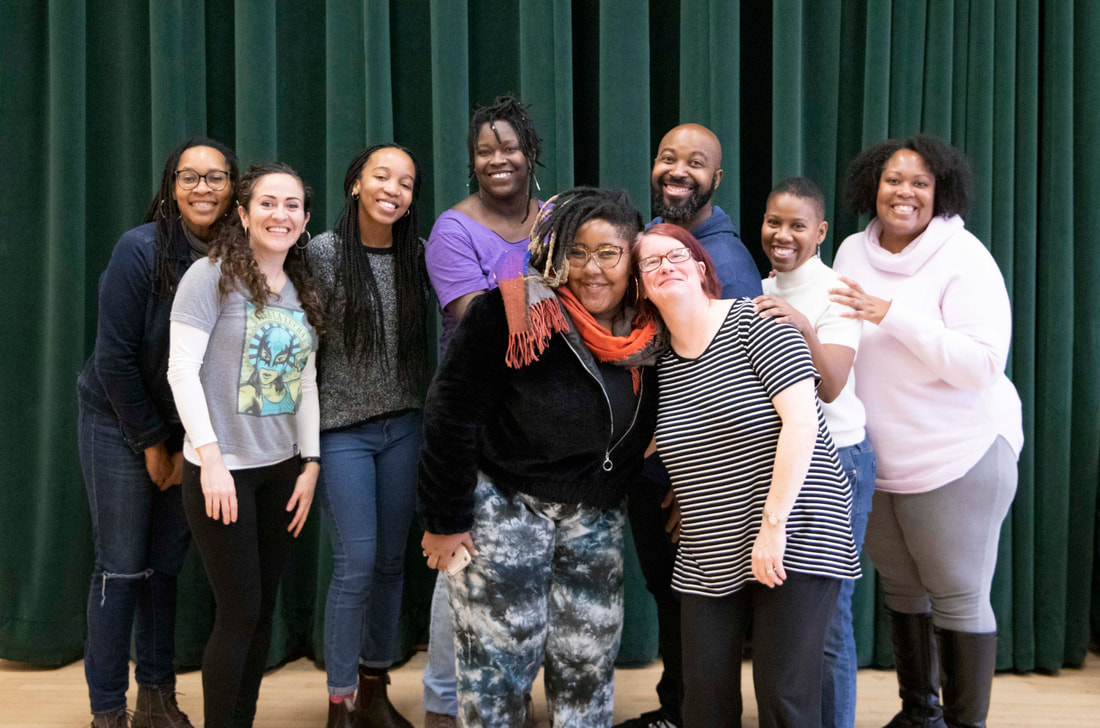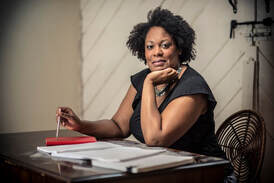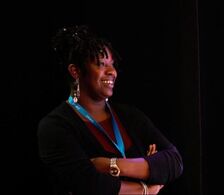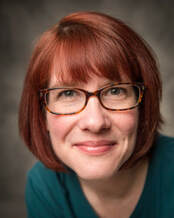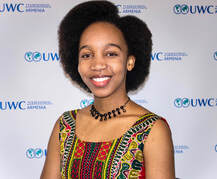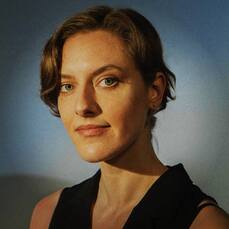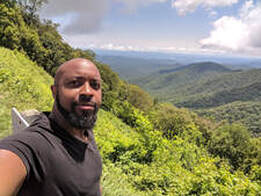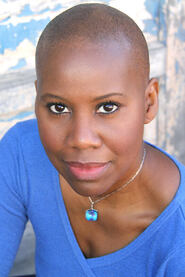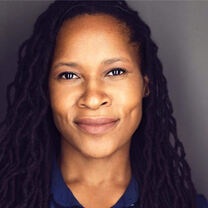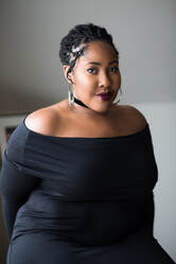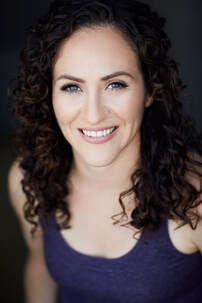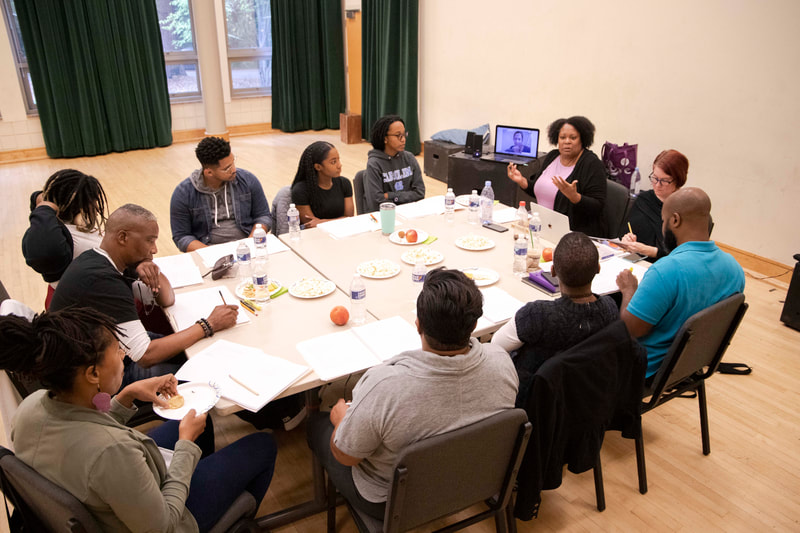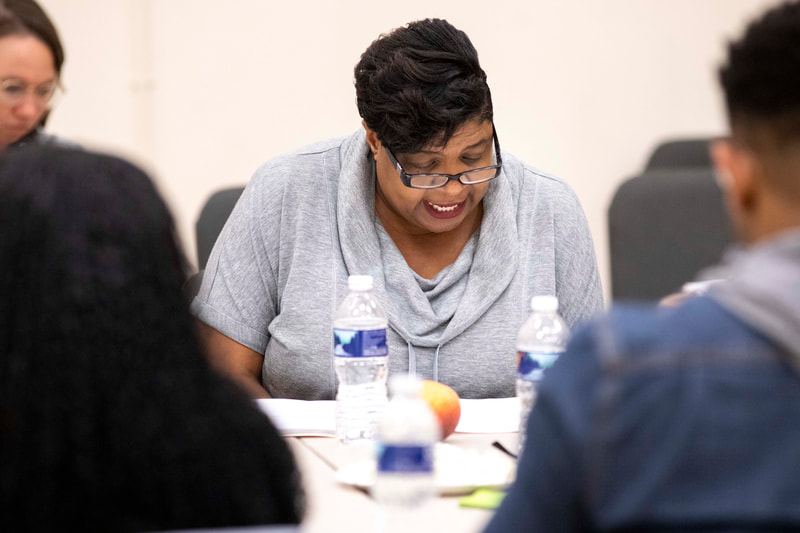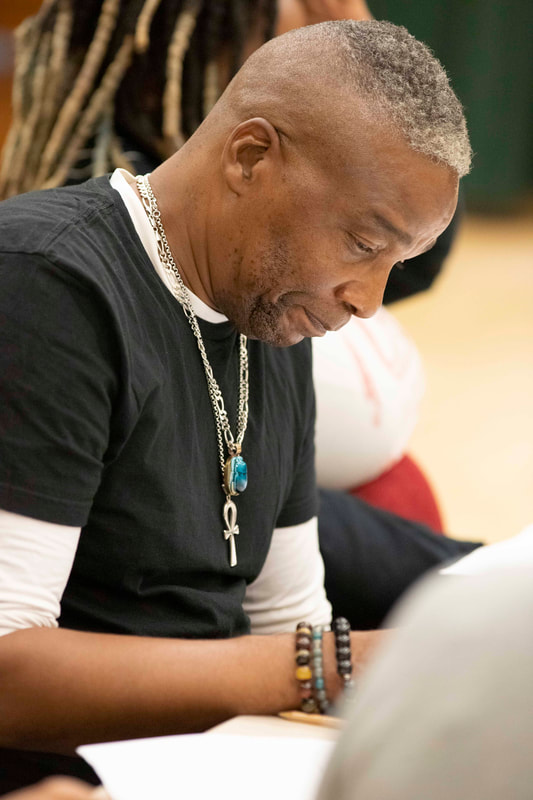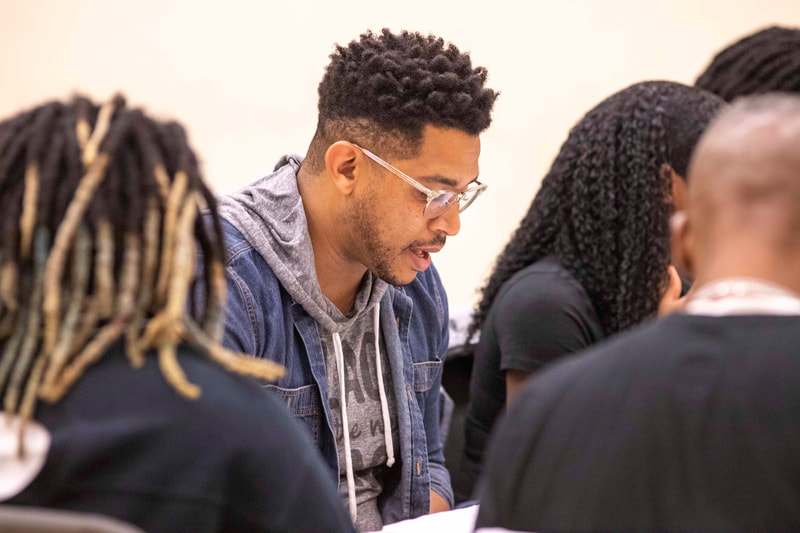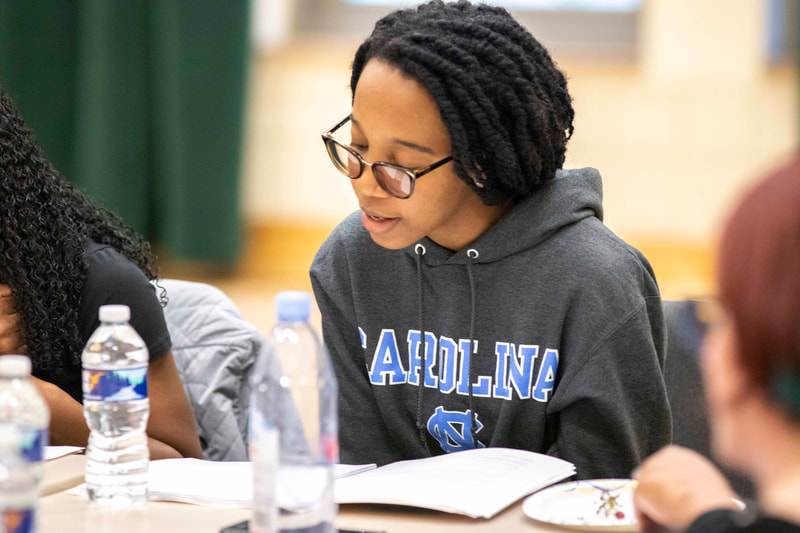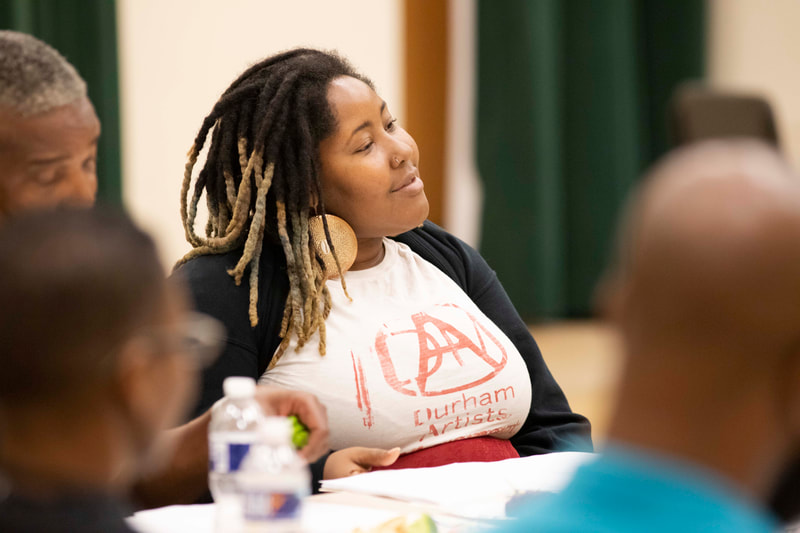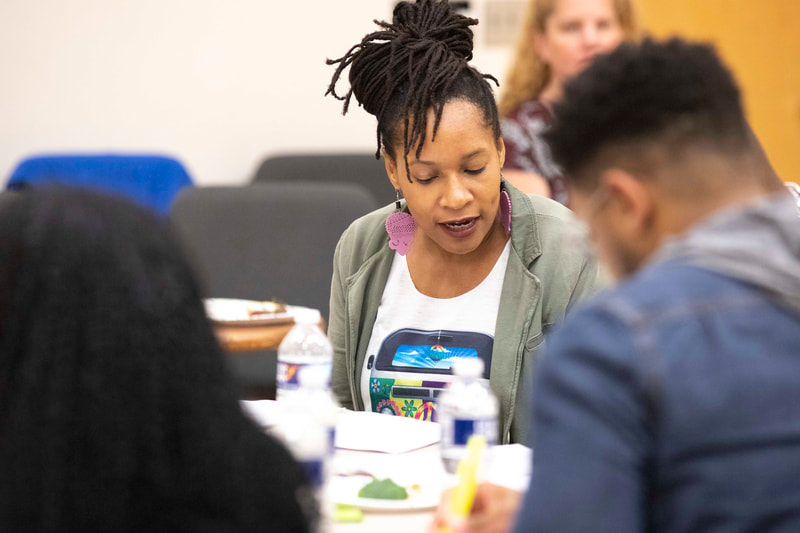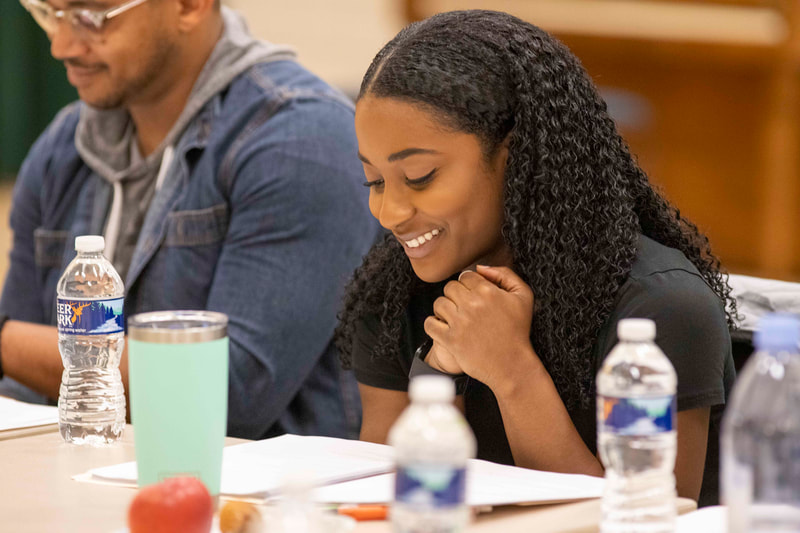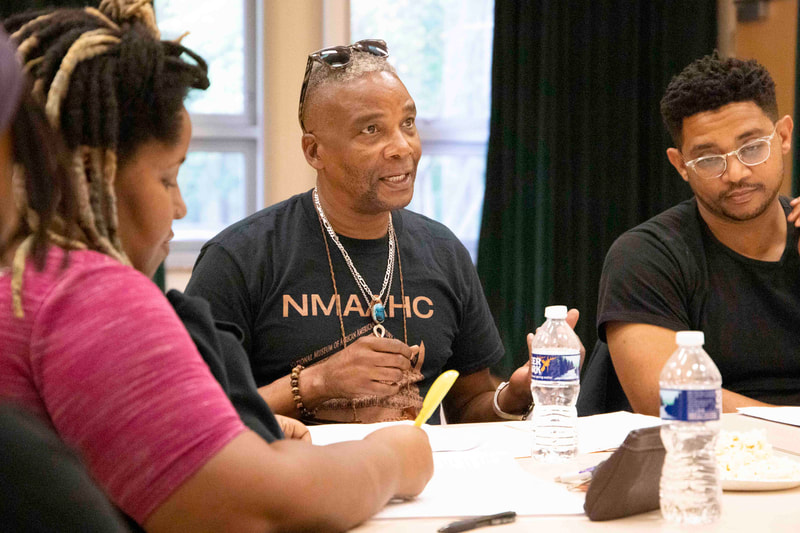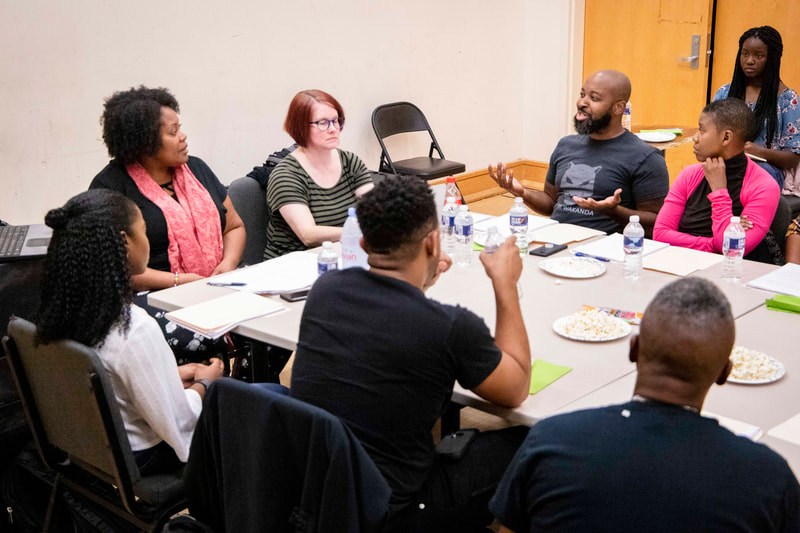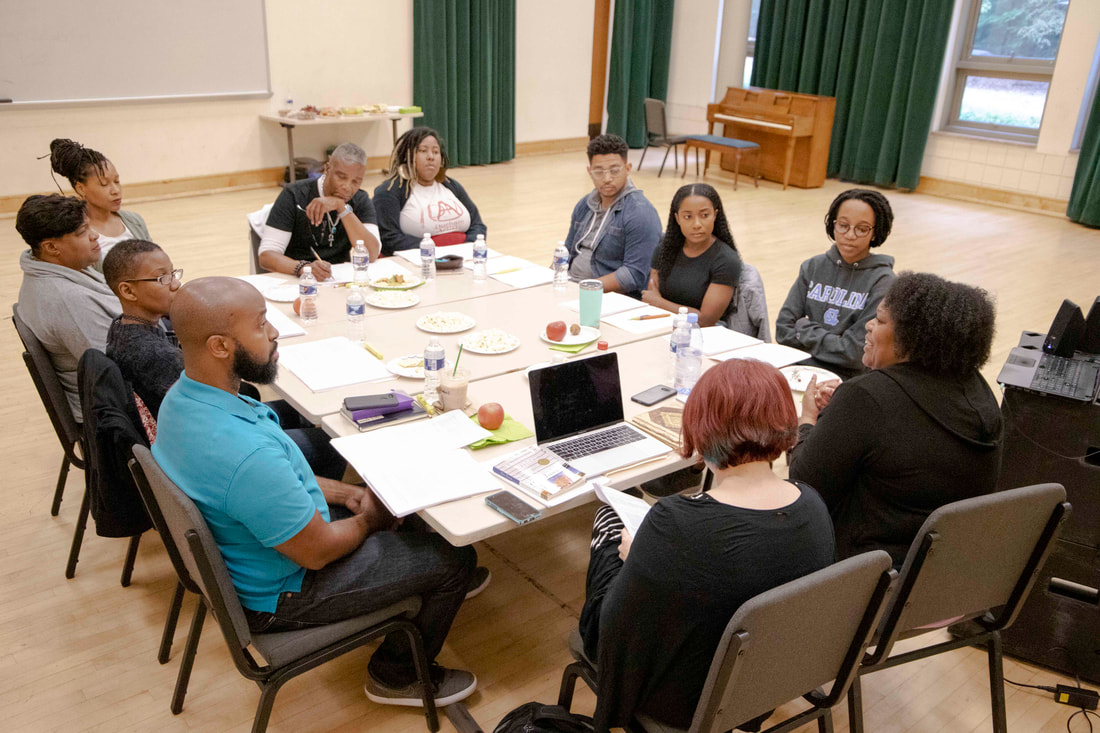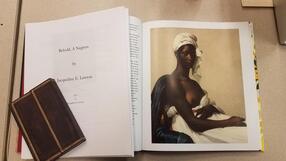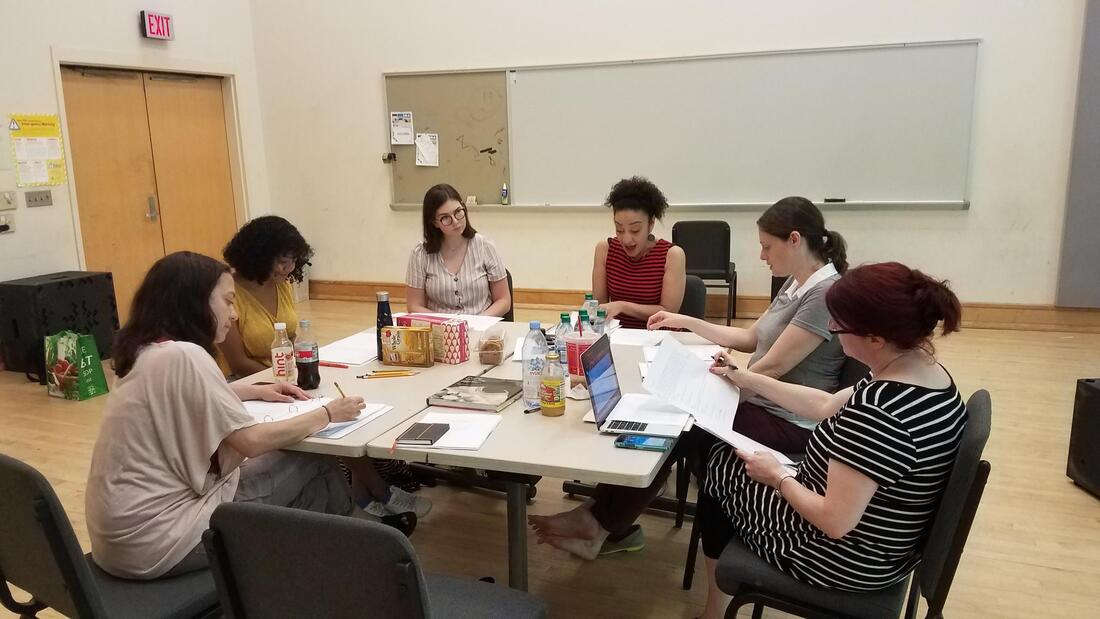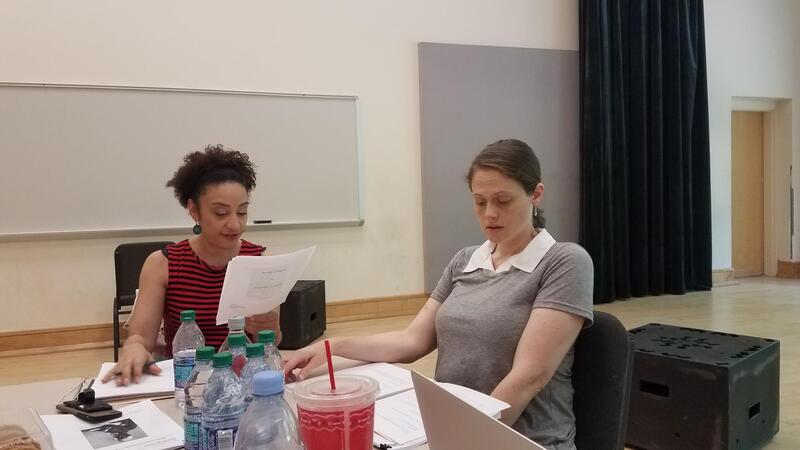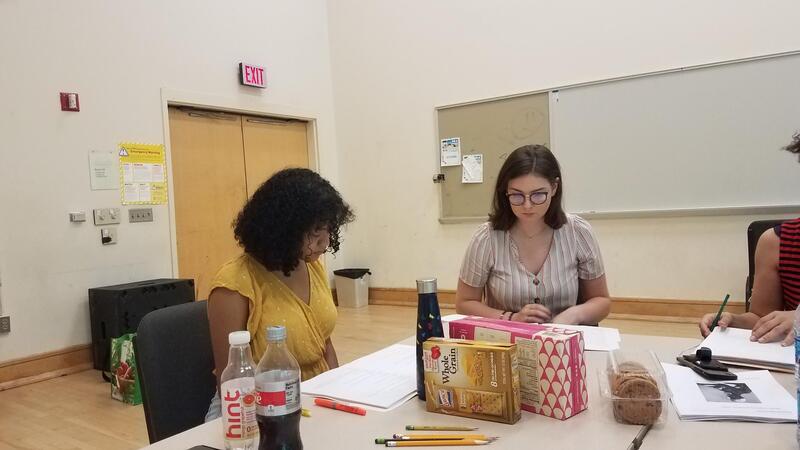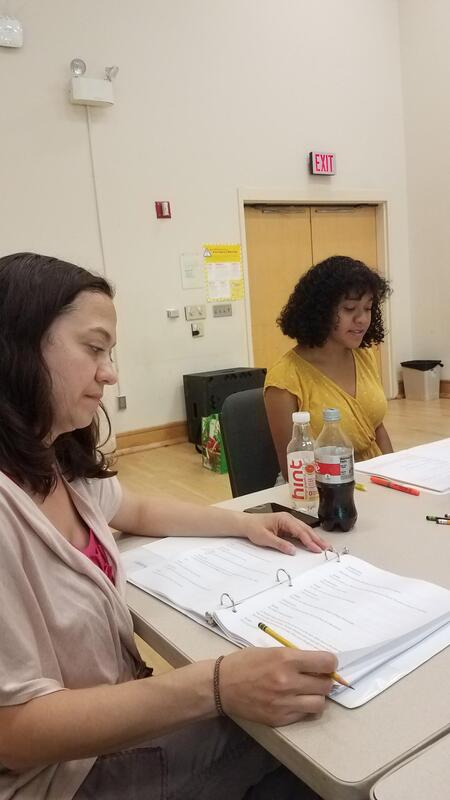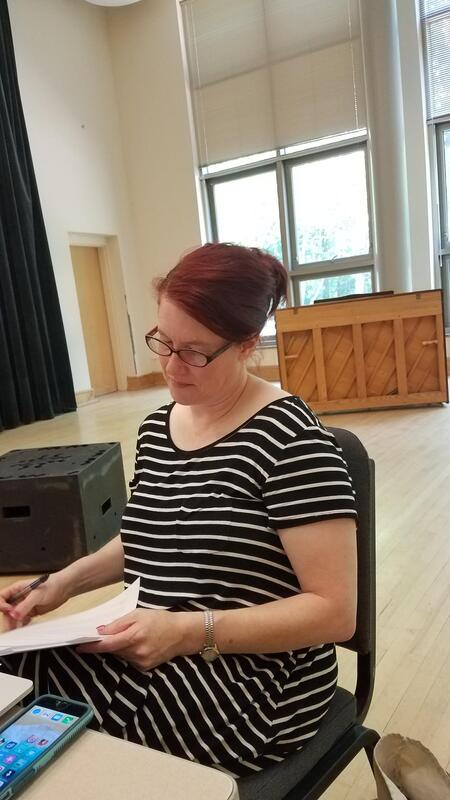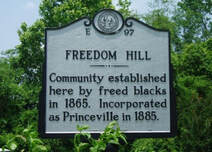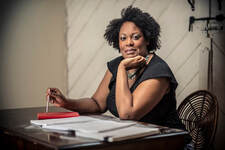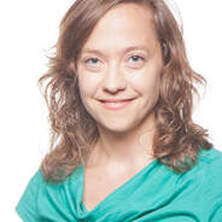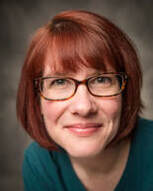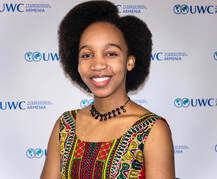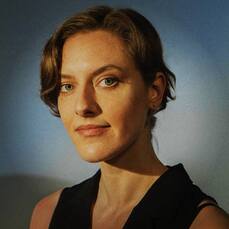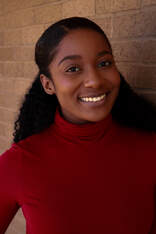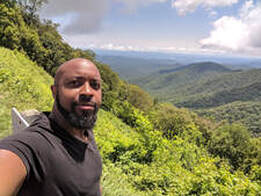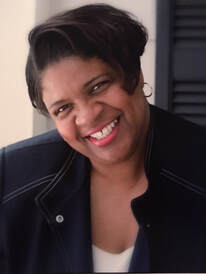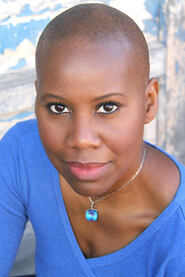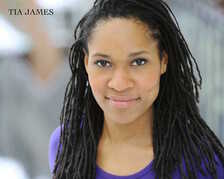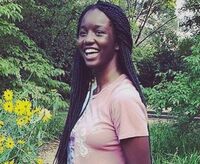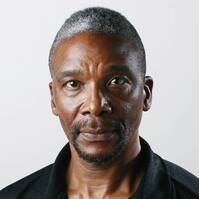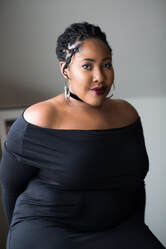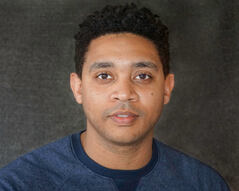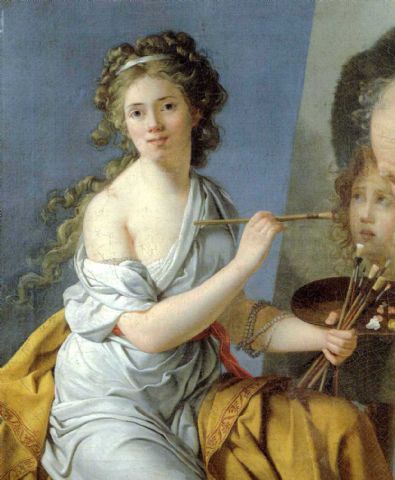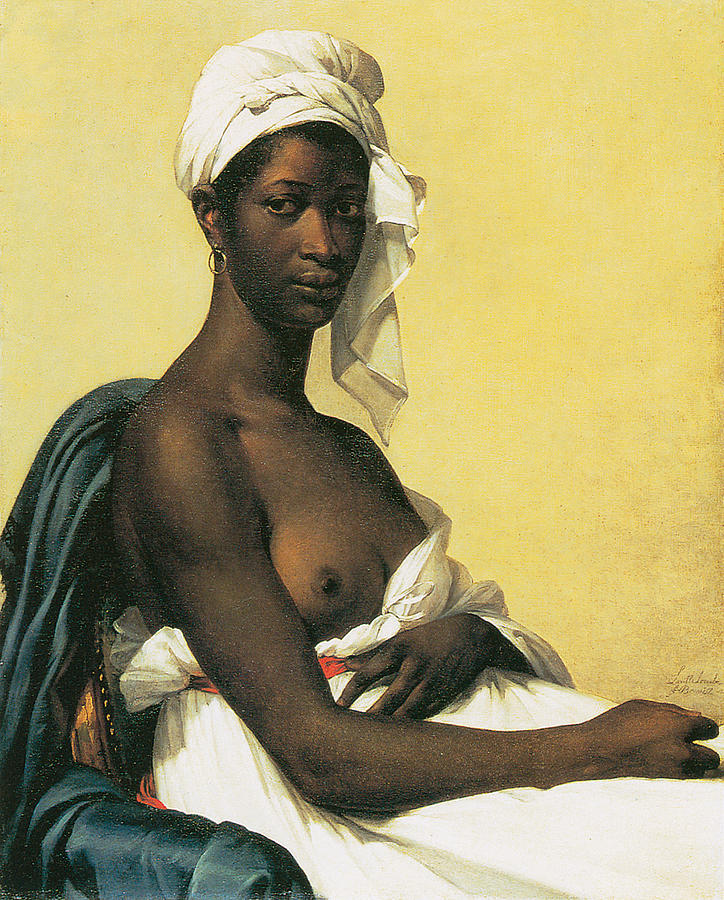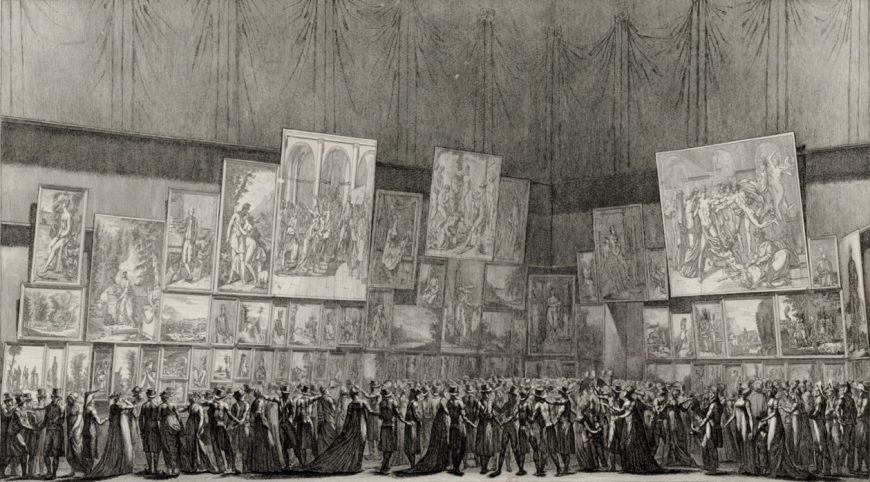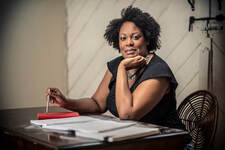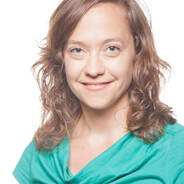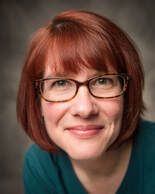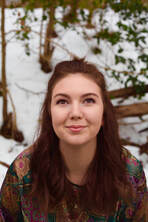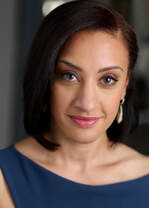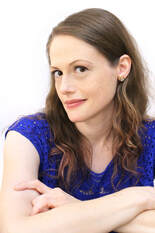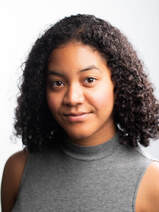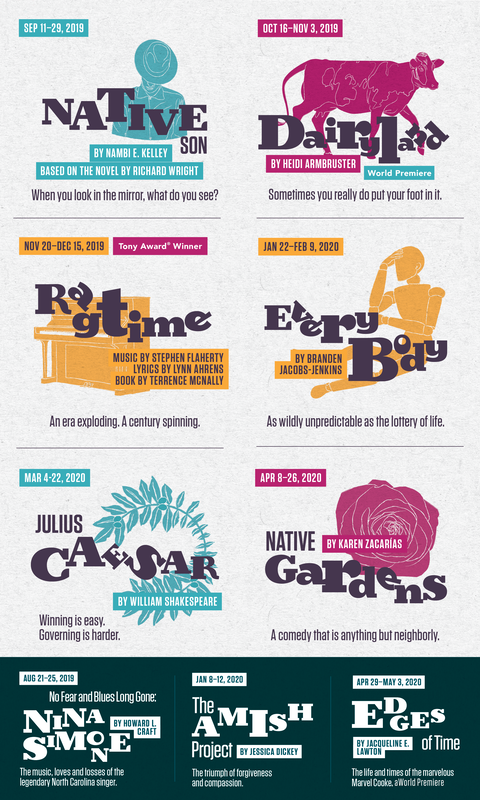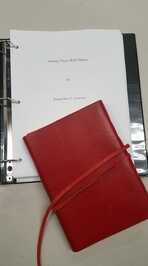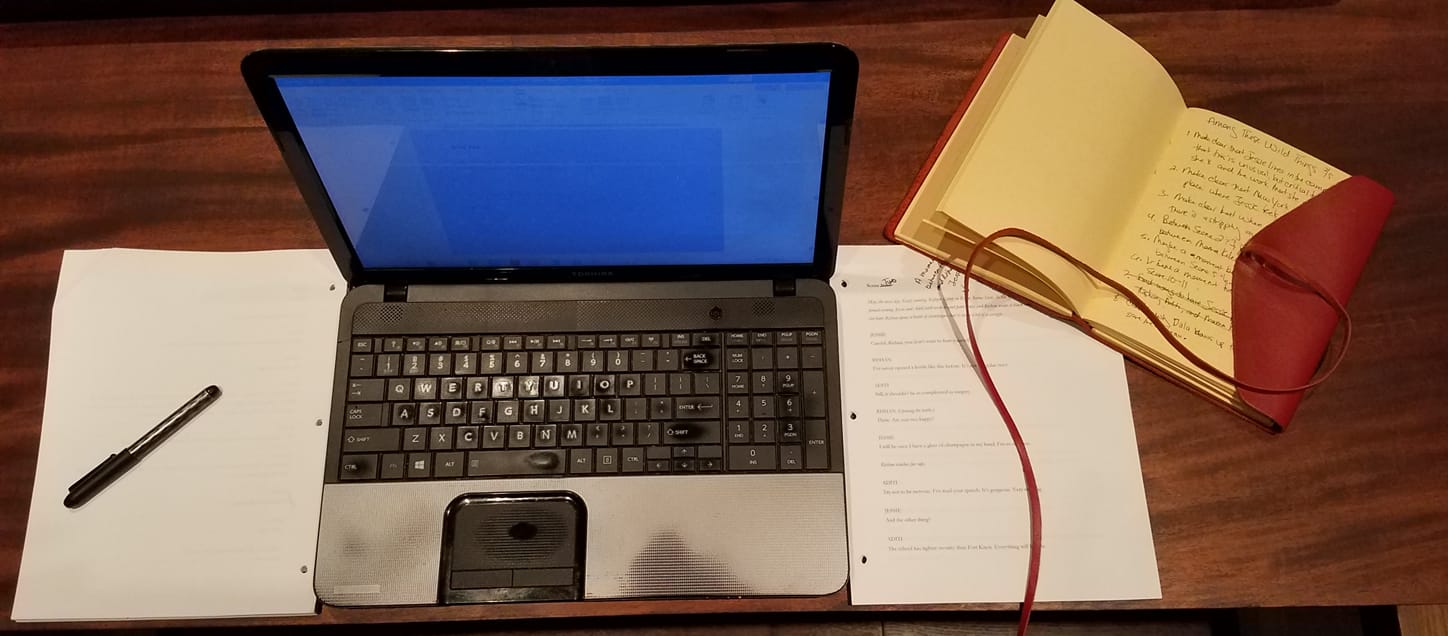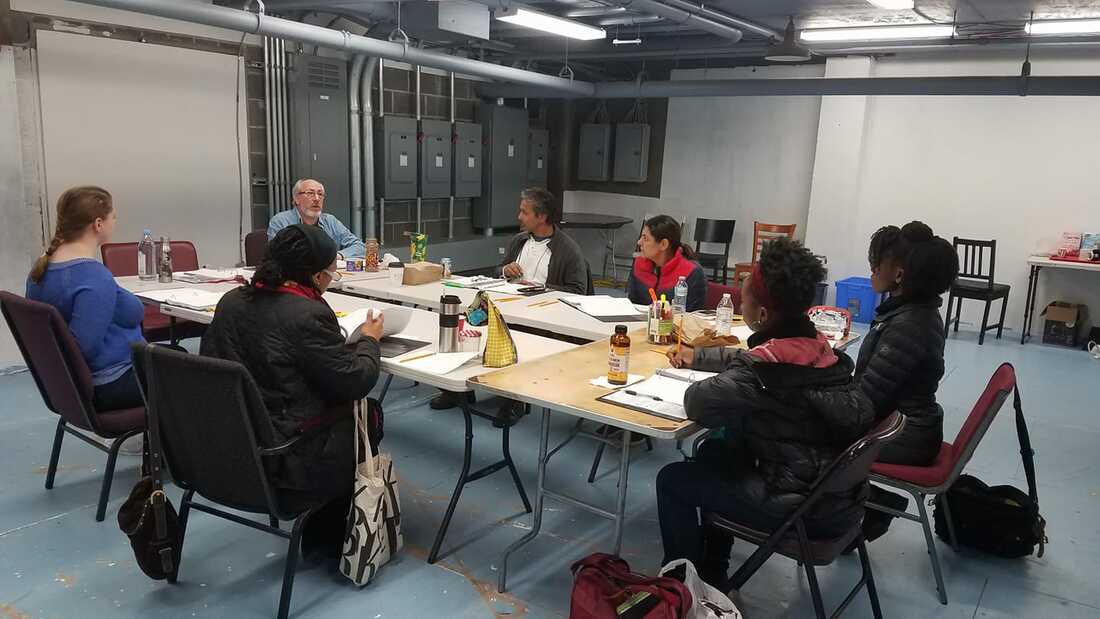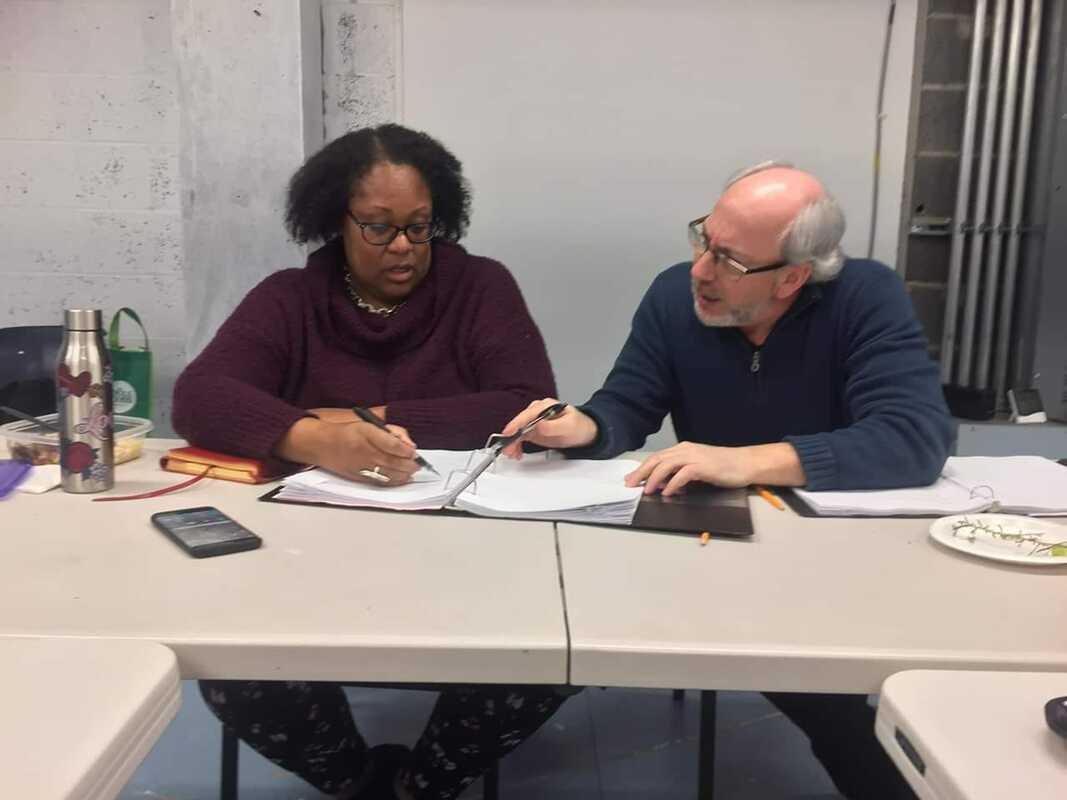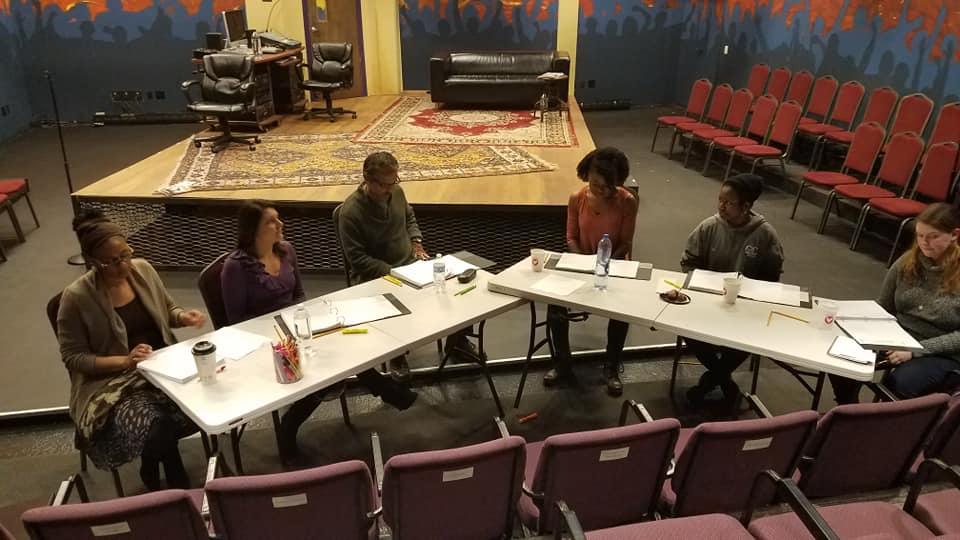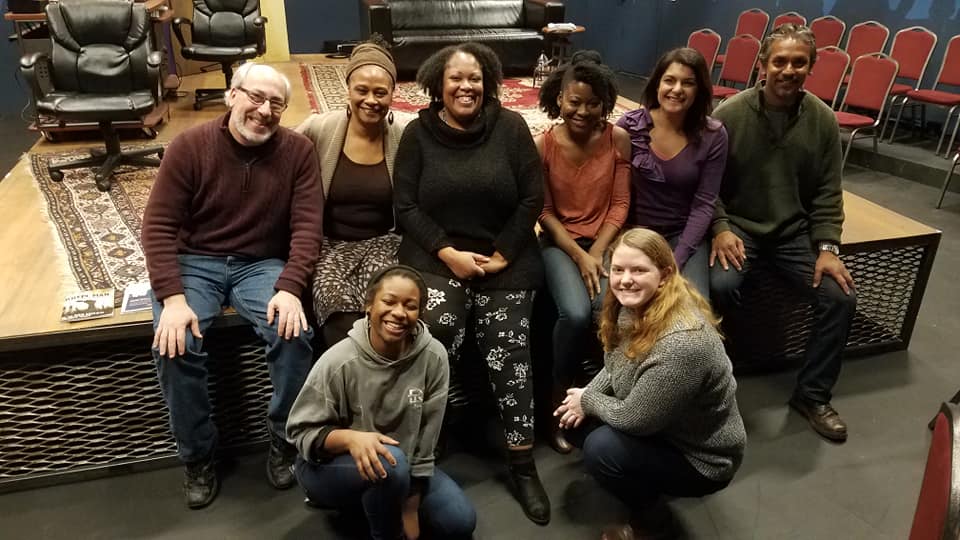 In the midst of everything, I'm so happy to have had the opportunity to speak with talk Piedmont Laureate Tamara Kissane about two projects that are near and dear to my heart. Tamara is the host of Artist Soapbox, a weekly podcast featuring original audio fiction and interviews with Triangle/NC artists about their creative process. In the first podcast, we discussed my latest play, XIX, with my collaborators JaMeeka Holloway-Burrell and Jules Odendahl-James. In the second podcast, Jules and I discuss narrative medicine, our collaboration on ARDEO, and the joy of working in collaboration as playwright and dramaturg. 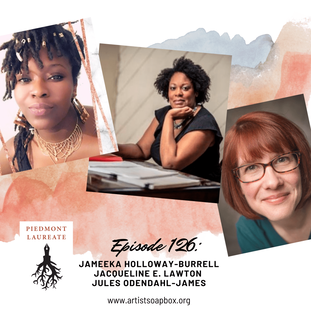 Along with director JaMeeka Holloway-Burrell and dramaturg Jules Odendahl-James, I had the opportunity to speak about my new play XIX, which was commissioned by the Women’s Theatre Festival in celebration and reckoning with the 100th anniversary of the 19th Amendment. XIX is a socio-political drama following a multi-racial family who find themselves in the middle of the fight for equality and divided over the right to vote. We also dig into playwriting topics such as translating a historical event into a contemporary piece, deciding what story to tell and who should be the center of the story, the development process and the roles of the director, dramaturg and playwright and much more. Click here to listen to the podcast interview. XIX received a public sharing through the UNC Process Series in February 2020. Next up, on Saturday, July 11th at 7:30pm, we will be sharing an excerpt of the play as part of the Women's Theatre Festival. The reading will be followed by a post show discussion on voting rights and advocacy. Because theatre has a long history of addressing social, political, and cultural issues, the conversations around the play will allow us to assess not only how far we've come, but also how much work we have left to do to move towards a more just and equitable society. 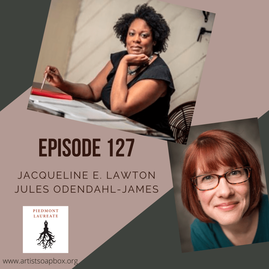 In the second episode, Jules Odendahl-James and I discuss our collaboration on ARDEO, which is a one act play inspired by research and personal narratives of health practitioners and patients at UNC-CH’s North Carolina’s Jaycee Burn Center. This play explores how patients and doctors communicate with each other; how health practitioners communicate with the public; and how theatre artists can be of service to patients, doctors and the larger public. In this conversation, Jules and I touch on the field of narrative medicine, the particular development process of ARDEO, the value of partnering the dramatic arts and science, and opportunities to create those collaborations. Speaking of collaborations, Jules and Jacqueline discuss their work together as theatre-makers and the awesomeness of dramaturgs and dramaturgy especially for new plays in development. Learn and read more about ARDEO, to see photos, and watch the short film of the piece performed.
0 Comments
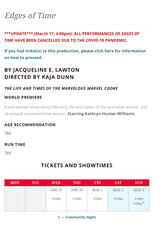 Late in the day on Tuesday, December 31, 2019, the World Health Organization’s China Country Office received a report of a pneumonia of unknown cause in a patient in Wuhan, China. The WHO began to monitor the situation. They requested information about the lab tests being done and possible diagnoses. We now know that the cause was the Coronavirus or COVID-19. Now, I don’t know exactly what time that report came through, but on Tuesday, December 31, 2019 at 9:03pm in Chapel Hill, North Carolina, I wrote the following words on Facebook: The one thing this decade has taught me is that nothing is promised, nothing is certain. Nothing. All we have is now. This moment. Today. For better or worse. My hope for the new year is to meet each day with grace; To live each day to the fullness of my ability; To love wholly and completely; To appreciate all that I have; To pursue my dreams; To work hard and diligently; To remain curious about the world; To embrace change as it comes; To learn, forgive, and do better; To be of service when called; To fight for the justice of others, especially those unable to do so for themselves; and To be a light and a blessing to my loved ones. I deeply and passionately wish the same for you all in 2020. Since that day, there have been 1,430,528 cases at least 184 countries and territories. We have lost 82,023 souls; and 301,828 people have recovered from the virus. In the United States, early numbers show that Black Americans appear to be contracting and dying from COVID-19 at a higher rate than white Americans. As horrifying as this is, I was not surprised to learn this. Black Americans are more likely to have underlying health conditions, such as asthma, diabetes, hypertension, high blood pressure, obesity, and other chronic illnesses. We are also more likely to have low wage jobs that can't be done remotely; and lack access to adequate health care. Click here, here, here, here, and here to learn more. It’s a terrifying picture. But this is what we know. This is what we know today, at the time that I am writing this post, which is 9:00pm on Tuesday, April 7, 2020 … Today would have been first rehearsal for my play, Edges of Time, at PlayMakers Repertory Company. This is a one woman play about the life, legacy, and career of the remarkable, investigative journalist Marvel Cooke, who worked as a reporter and editor in New York City from the late-1920s to the early 1960s. But it’s also more than that. It’s about what happens when political ideas are weaponized; when journalism and truth are attacked; and when powerful voices that represent and demand justice and civil rights for marginalized communities are silenced. The play is far too relevant than I anticipated when I began writing it. I had been looking forward to today for a long time, but nothing is promised. Nothing. Not even hard won, long hoped for days. But I didn’t wake up feeling sad or disappointed. I didn’t have an ache for what today should have been. Instead, I woke up feeling grateful. I felt grateful to be alive, to be healthy or at least not sick, to have a job where I get to teach (remotely) and make theatre alongside some truly smart, funny, generous, and talented people, and to know so few people who have been tragically impacted by the virus. But I know that all of this could change at any moment ... and I spend a lot of days angry at the response to this crisis and afraid of how easily this virus can be spread ... Deep breaths ... Here is what I also know: It is not safe to gather together today. And we don’t know how long we’ll be asked to remain apart and inside, but the longer we do the better chance we’ll have at protecting ourselves, our loved ones, and our neighbors. But know this, the world that we return to will be very different from the one we left. It will have to be. My God, we should do everything possible to make sure that it is, and that the structures of inequities and systems of oppression that were in place are no longer ruling over us ... that is my hope anyway. In the meantime, I’m going to write. I'm going to write because there will come a time when we’ll able to gather again, and we will need the stories more than ever. We'll need bold, daring, beautiful stories to help us navigate this ever-changing world. Stories that remind us that love and hope and the fight for a better tomorrow are truly worthwhile endeavors. Stories that show us how wondrous, thrilling, and terrifying it can be … to be human. As you know, I received the 2019-2020 Institute for African American Research Faculty Fellowship to support the research, writing, development, and presentation of a new play, So Goes We. This is the play that examines examines what happens in the immigrant rights movement when black immigrants seek asylum. It follows the fraught and intersecting journeys of black asylum seekers and their legal advocates in the U.S. post-2016. The new play development workshop took place over two days in December. The most exciting part of our time together was when our director, JaMeeka Holloway-Burrell, got the actors up on their feet. We were able to figure out the opening text and the rhythm and flow of the choral work. I also got a clearer understanding of how the characters function when they are onstage, but are outside of the scenes. There's still a ways to go with the script, but it was just so inspiring to be in the room with everyone and hear the play. Then, on Tuesday, March 3rd, I had the opportunity to speak about the play and other work that I had completed since moving to Chapel Hill. I was joined in this conversation by Kathy Perkins, who is a lighting designer and editor. The extraordinary work that Kathy has done to honor and preserve black women playwrights and black theatre history is remarkable. We had a small, but attentive and enthusiastic audience. It was wonderful to share a bit about my creative process with folx who enjoy theatre, but who are familiar with the ins and out of how it all comes together. Now, I was hoping to have a second workshop and public reading in May, but that's not going to happen for a number of reasons, including the quarantine. I've been toying with the idea of doing something online, but the choral nature of the play may make that difficult. We'll see. In the meantime, I wanted to take a moment to share the photos of our time together. As a reminder, the workshop was directed by JaMeeka Holloway-Burrell with dramaturgy by Jules Odendahl-James. The cast included Thaddeus Edwards, Rasool Jahan, Tia James, Monet Marshall, and Sarita Ocón. Our stage manager was Erin Bell, who was also our photographer and stage directions were read by Takhona Hlatshwako, who was working with me as a research assistant through UNC's Institute for the Arts and Humanities Honors Collaboration. I hope you enjoy these photos! So Goes We Workshop Day One |
My BlogI'm a playwright, dramaturg, and teaching artist. It is here where you'll find my queries and musings on life, theater and the world. My posts advocate for diversity, inclusion, and equity in the American Theatre and updates on my own work. Please enjoy!
Categories
All
Archives
June 2020
Reading List
|
